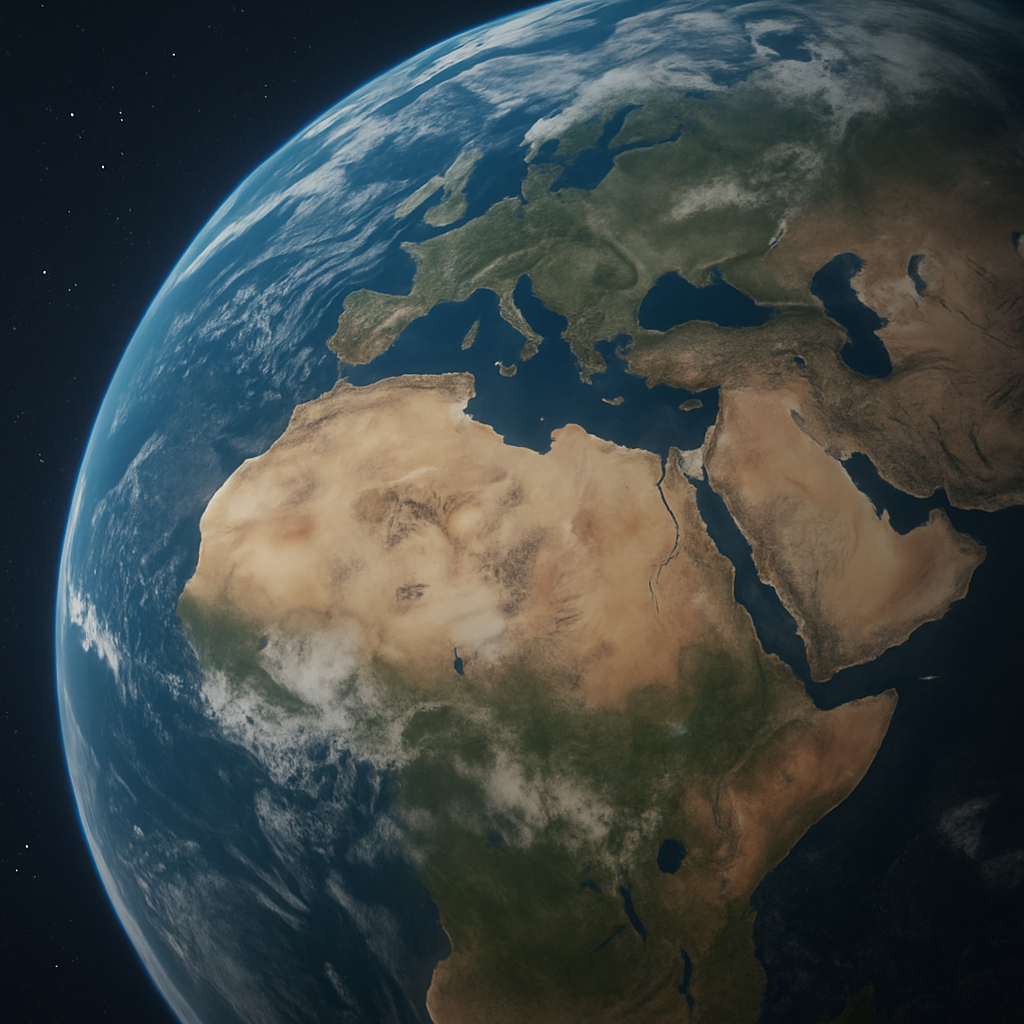From the first pages of Scripture, it is clear that the earth matters to God. He created it, called it “very good” (Genesis 1:31), and entrusted it to mankind to “subdue” and “have dominion over” (Genesis 1:28). Humans were created not only in God’s image but as His stewards, assigned to care for and govern creation under His lordship. True environmental care, then, is not a modern innovation—it is a biblical responsibility.
But like every good gift, this responsibility can be corrupted. Today, we are witnessing a dangerous inversion: instead of man ruling the earth under God, the earth is being elevated above man—and above God Himself. What began as stewardship has become worship. In the name of protecting the planet, some have embraced a worldview that devalues human life, despises human dominion, and dethrones the Creator.
This shift is not neutral. It is rebellion. And Scripture warns us of it plainly.
From Stewardship to Worship
Romans 1:25 describes the tragic exchange that lies at the heart of all idolatry:
“They exchanged the truth of God for a lie and worshiped and served the creature rather than the Creator, who is blessed forever. Amen.”
Romans 1:25
In ancient times, this took the form of bowing to sun and moon, or sacrificing to the fertility of the land. Today, it is no less religious. People speak of “the planet” or “nature” as though it has will, personality, or moral authority. Environmental concerns are framed not just scientifically, but morally and spiritually. Polluting is not just bad policy—it is sin. Emitting carbon is not just short-sighted—it is blasphemy.
And while the language has changed, the spiritual reality has not. Earth worship is alive and well. And just as in ancient times, it leads to deadly consequences.
Humanity as the Problem
One of the most disturbing developments in modern environmentalism is its hostility toward humanity itself. Certain voices in the climate movement argue that people are a threat to the planet—that our very existence is the problem.
This thinking leads to chilling conclusions:
Some advocate for forced population control, especially among the poor.
Others push for the normalization of childlessness as a moral duty.
Radical groups like the “Voluntary Human Extinction Movement” call for the complete end of humanity in the name of planetary preservation.
What do all these have in common? They represent a complete rejection of God’s first command to mankind: “Be fruitful and increase in number; fill the earth and subdue it.” (Genesis 1:28). The creation mandate has been flipped on its head. Life is no longer the goal—minimizing life is. And all in the name of saving the earth.
This is not stewardship. It is anti-human. And it is anti-God.
The True Place of Mankind
God created the earth for man—not man for the earth. Psalm 115:16 puts it plainly:
“The heavens are the heavens of the LORD, but the earth He has given to the sons of men.”
Psalm 115:16
This does not grant license for abuse or greed. Rather, it affirms the dignity and responsibility of humanity as God’s appointed rulers of the world. We are called to cultivate, protect, and enjoy the earth—but always in reference to its Creator.
The moment the earth becomes more important than human life, we have entered idolatry. The moment “nature” becomes our moral compass, we have rejected the living God. Scripture teaches that man is the crown of creation, uniquely made in God’s image (Genesis 1:26–27). To value trees over babies, or oceans over souls, is to violate that order—and incur judgment.
A Redeemed Stewardship
Christians should care about the earth—but as Christians, not pagans. Our motivation is not fear of nature’s wrath, but gratitude to its Maker. Our goal is not to minimize our presence on the planet, but to maximize our obedience on it. We do not worship the earth; we worship the One who made it—and who will one day make it new.
The gospel speaks even here. Through Christ, our hearts are turned from idols to the living God (1 Thessalonians 1:9). And as we await the “new heavens and a new earth in which righteousness dwells” (2 Peter 3:13), we walk faithfully in the one He has given us now—tending it, respecting it, but never bowing to it.
The Earth Is the Lord’s
Psalm 24:1 reminds us: “The earth is the LORD’s, and all it contains, the world, and those who dwell in it.”
Creation is not ours to destroy—but neither is it ours to deify. The earth is not a mother to be feared, but a gift to be governed. In the end, the difference between stewardship and idolatry is this: whether we honor the creation for its own sake, or for the sake of the Creator who gave it.
Let us be found faithful in this, and in all things, until the earth is filled not with man’s guilt or man’s glory, but “with the knowledge of the glory of the LORD, as the waters cover the sea” (Habakkuk 2:14).











